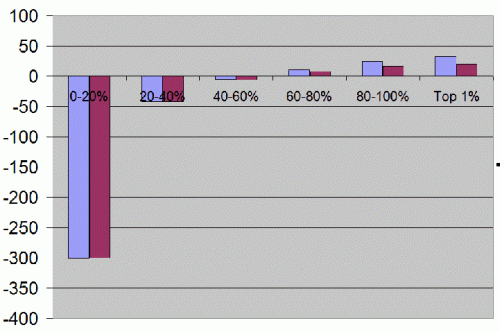 |
 |
 |
 |
 |
 |
Last week was not the first time the United States was transfixed by an act of terror. In 1964, three civil rights workers in Philadelphia, Mississippi were (quoting Wikipedia) “threatened, intimidated, beaten, shot, and buried by members of the Mississippi White Knights of the Ku Klux Klan, the Neshoba County Sheriff’s Office and the Philadelphia Police Department.” It took 44 days and an FBI-initiated act of torture to locate their bodies.
The FBI, in a nod to the theory of comparative advantage, subcontracted the torture to the Mafia, more specifically to the Colombo family associate Gregory Scarpa. Here’s the story as relayed by Selwyn Raab, the New York Times investigative reporter who covered the Mafia for 25 years:
[Scarpa] went down to Mississippi for the FBI and kidnapped a KKK guy agents were sure was involved in disposing of the bodies. The guy had an appliance store. Scarpa bought a TV and came back to the store to pick it up just as he was closing. The guy helps him carry the TV to his car parked in the back of the store. Scarpa knocks him out with a bop to the head, takes him off to the woods, beats him up, sticks a gun down his throat and says “I’m going to blow your head off”. The KKK guy realized he was Mafia and wasn’t kidding and told him where to look for the bodies.
(Source: Raab’s book Five Families, which is fascinating throughout. Raab says the story has been verified by “former law enforcement officials who asked for anonymity and lawyers who are aware of the circumstances”.)
The moral of the story is that torture sometimes works. Other times it doesn’t, eliciting either no information, or false information, or whatever “information” the victim believes the inquisitor wants to hear. I am almost 100% ignorant, and hence virtually 100% agnostic, about the relative frequency of these outcomes in those cases where the torturer is both skilled in his art and genuinely interested in eliciting the truth. I will be very glad if any educated reader can shed light on this question. I doubt that we’re likely to learn of any controlled experiments, but I’ll settle for sketchy data or even well-chosen anecdotes. Failing that, I’ll settle for plausibility arguments.















